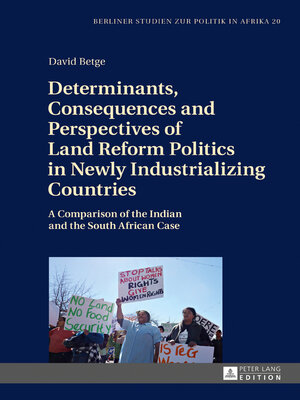Determinants, Consequences and Perspectives of Land Reform Politics in Newly Industrializing Countries
ebook ∣ A Comparison of the Indian and the South African Case · Berliner Studien Zur Politik In Afrika
By Salua Nour

Sign up to save your library
With an OverDrive account, you can save your favorite libraries for at-a-glance information about availability. Find out more about OverDrive accounts.
Find this title in Libby, the library reading app by OverDrive.



Search for a digital library with this title
Title found at these libraries:
| Library Name | Distance |
|---|---|
| Loading... |
This comparative case study addresses central determinants of inequalities that persist in India and South Africa. The particular focus of the study is on programs aiming at the redistribution of land to the landless poor and these programs' consequences. The central question is why extreme inequalities persist despite land redistribution programs that have been in place for decades and what role different actors and dominant ideas play in this. Beyond this empirical focus, the study transcends theoretical cleavages in the social sciences by following the basic ideas of Giddens' Structurational Theory. An actor-centred approach is chosen as the primary tool for analysis. It is complemented with a structurational approach to discourse analysis for a detailed analysis of actors' preferences.







